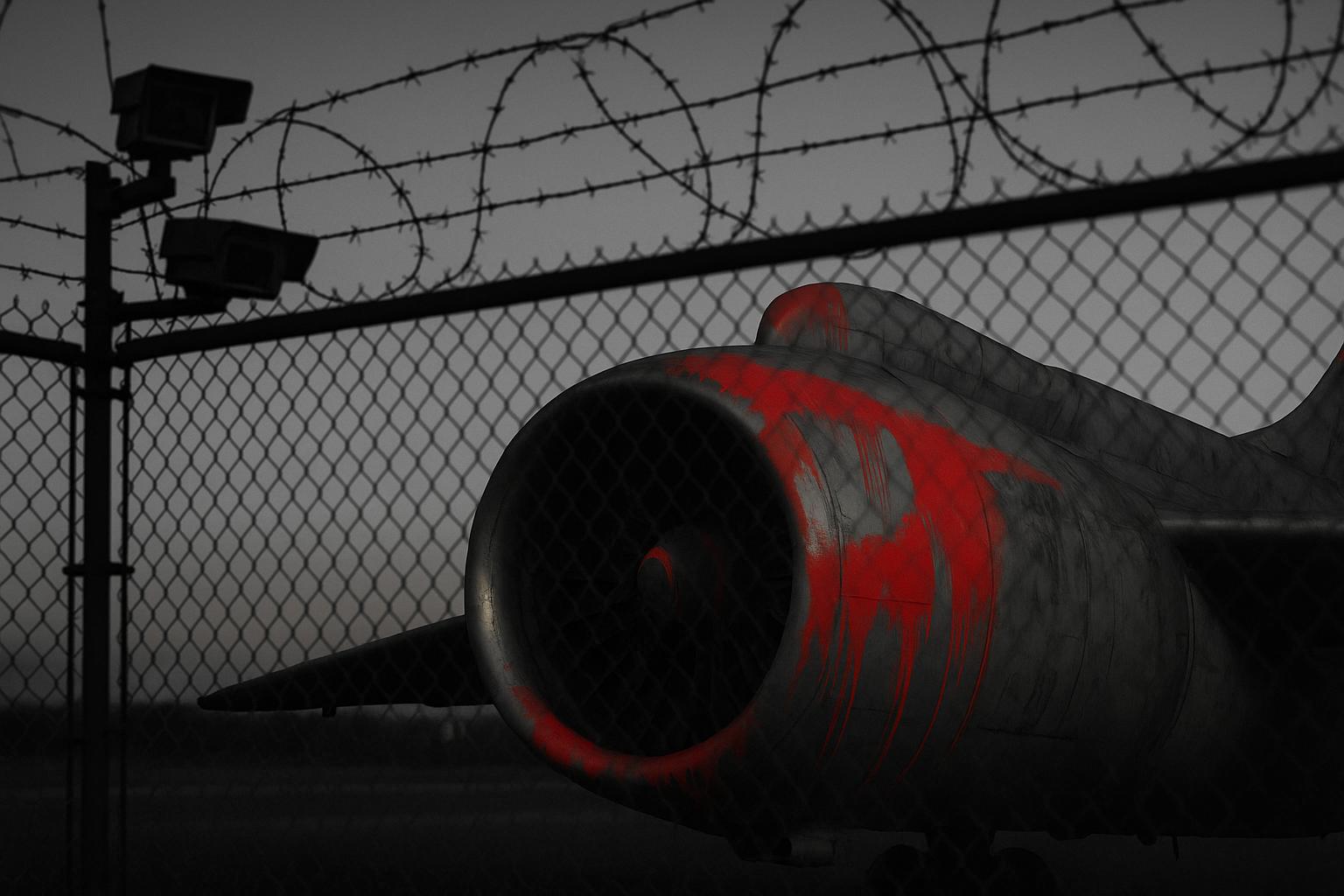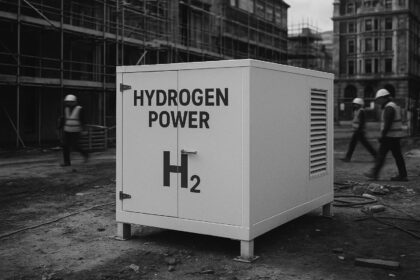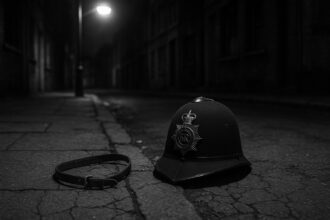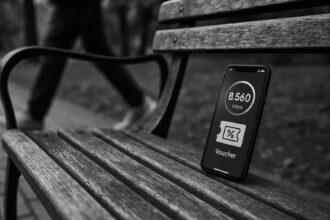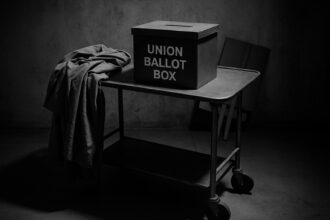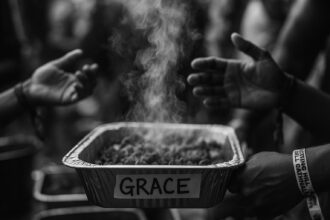Following a break-in at RAF Brize Norton where activist group Palestine Action vandalised military aircraft, two additional men have been arrested, bringing the total to six. The incident has prompted a proposed ban on the group under the Terrorism Act and a government security review of UK military bases.
Two additional arrests have been made on suspicion of terror offences following a break-in at RAF Brize Norton, the UK’s largest Royal Air Force base, where military aircraft were vandalised with paint. The incident, which took place in the early hours of 20 June, was claimed by the pro-Palestinian activist group Palestine Action. Footage released by the group showed individuals riding electric scooters inside the base and spraying red paint into the engines of two Airbus Voyager aircraft in protest against the UK government’s military support for Israel’s actions in Gaza.
South East counter-terrorism police have confirmed the arrest of two men aged 22 and 24 from London, bringing the total number of arrests linked to the event to six. The group detained includes three suspects charged with offences related to the commission, preparation, or instigation of terrorism, alongside a woman arrested on suspicion of assisting offenders. All remain in custody pending further investigation. Authorities have refrained from releasing detailed information about the suspects or their connections beyond the charges.
Following the break-in, Defence Secretary John Healey ordered a comprehensive security review across all UK military installations. The breach exposed vulnerabilities despite the base being protected by extensive perimeter fencing, manned checkpoints, security cameras, and sensor systems. Nonetheless, a defence source acknowledged that complete coverage of such a large facility could not be guaranteed. Downing Street stated that although the aircraft were damaged, no scheduled operations or movements were disrupted.
In response to the incident, Home Secretary Yvette Cooper announced plans to proscribe Palestine Action under the Terrorism Act 2000. If approved by Parliament after a draft order laid before it on 30 June, the designation will make it a criminal offence to be a member or to offer support to the group, with penalties including imprisonment for up to 14 years. The government cited Palestine Action’s history of “unacceptable criminal damage,” including previous attacks on defence factories and political vandalism, as grounds for the ban. The move places Palestine Action alongside about 80 other organisations, including Hamas and al-Qaida, currently proscribed under UK terrorism laws.
The pro-Palestinian activists maintain that their actions are non-violent protests targeting Britain’s alleged complicity in Israeli military operations. Their activities have included multiple high-profile disruptions, such as damaging a Trump-owned golf resort and reportedly putting two air-to-air refuelling tankers temporarily out of service. They used repurposed fire extinguishers to spray paint and crowbars to cause further damage during the base break-in.
The proposed ban has sparked significant controversy and public debate. Critics, including some MPs and prominent legal figures, argue that the terrorism designation is disproportionate, given that the group’s tactics have been primarily disruptive rather than violent. Protests against the ban, particularly in central London, have resulted in multiple arrests and charges by police. Palestine Action has denounced the proscription as an attempt to silence dissent and maintain the UK’s military involvement in the Middle East.
Prime Minister Sir Keir Starmer condemned the break-in as an “act of vandalism” and described it as “disgraceful.” Meanwhile, the Ministry of Defence has emphasised that Voyager aircraft involved have not engaged in refuelling Israeli jets and that the UK’s operational support in the region remains a sensitive issue, especially as British components are used in military equipment such as the F-35 fighter jets. The government has faced increasing pressure domestically about its stance on arms sales and military cooperation amid the escalating conflict in Gaza.
This incident at RAF Brize Norton underlines wider tensions between national security concerns and activist campaigns challenging the UK’s foreign policy—highlighting the complexities of balancing protest rights with safeguarding critical defence infrastructure.
 Reference Map:
Reference Map:
- Paragraph 1 – [1], [7]
- Paragraph 2 – [1], [2], [7]
- Paragraph 3 – [7], [6]
- Paragraph 4 – [1], [4], [5], [6]
- Paragraph 5 – [1], [2], [3], [7]
- Paragraph 6 – [4], [5], [3]
- Paragraph 7 – [1], [7], [6]
Source: Noah Wire Services
- https://www.bbc.com/news/articles/cjrln22e3w2o – Please view link – unable to able to access data
- https://apnews.com/article/37d446042bfe9796fe6917da1ae4f21a – British counter-terrorism police have arrested four individuals in connection with a break-in at the Royal Air Force base in Brize Norton last week, where two aircraft were vandalized with red paint. Among those arrested are two men, aged 24 and 36 from London, and a 29-year-old woman, all suspected of preparing or instigating acts of terrorism. A 41-year-old woman was also arrested for allegedly assisting an offender. The pro-Palestinian group Palestine Action claimed responsibility for the act, releasing footage of a protester spraying paint into a jet’s turbine. The group accuses the UK of supporting military operations in Gaza and the Middle East and has carried out previous high-profile protests, including vandalizing a Trump-owned golf resort in Scotland. In response, the UK government announced plans to ban Palestine Action under anti-terrorism legislation, which would criminalize membership or support of the group with penalties of up to 14 years in prison. The proposed ban is set to be presented to Parliament for approval. The UK currently has around 80 proscribed organizations under its terrorism laws, including Hamas, al-Qaida, and far-right extremist groups.
- https://www.ft.com/content/e1542032-6185-4146-abd8-5d0b7d493f84 – UK counterterrorism police arrested four individuals following a break-in at RAF Brize Norton, the country’s largest air force base. The incident involved members of the pro-Palestinian group Palestine Action, who infiltrated the base using electric scooters and vandalized Voyager aircraft with red paint to protest the UK government’s support for Israel’s actions in Gaza. Among those arrested were three suspects—two men (ages 36 and 24) and a 29-year-old woman—on terrorism-related charges, as well as a 41-year-old woman suspected of assisting them. All remain in custody. The Ministry of Defence has initiated a security review across UK military facilities. In response, the UK government plans to classify Palestine Action as a terrorist organization under the Terrorism Act 2000, with a draft order to be presented to Parliament on June 30. This measure, which criminalizes support for the group, prompted objections from politicians, celebrities, and the public. Protests against the ban led to 13 arrests and seven charges by the Metropolitan Police. Palestine Action maintains its actions are non-violent protests targeting the UK’s role in arming Israel.
- https://apnews.com/article/967a0080ffa855465cc7049e8fa17aac – The UK government announced plans to ban the pro-Palestinian activist group Palestine Action under anti-terrorism laws following a break-in at a Royal Air Force base in Brize Norton, where two planes were vandalized with red paint. The group is accused of engaging in extremist criminal activity, including damaging military property and disrupting operations. Officials said the move would make it a criminal offense to belong to or support the group, carrying a maximum prison sentence of 14 years. Home Secretary Yvette Cooper cited the group’s long history of criminal damage, including an attack on a defense factory in Glasgow in 2022 and political graffiti at a Trump resort in Scotland earlier this year. The attack is under investigation by counter-terrorism police. Palestine Action accuses the UK of complicity in Israeli military actions in Gaza. The ban is subject to Parliamentary approval and aligns with measures previously enacted against groups like Hamas, al-Qaida, and far-right organizations. The announcement sparked clashes between pro-Palestinian demonstrators and police in London.
- https://www.ft.com/content/4db657d1-7e74-4bc5-971c-7cb301fe19f6 – The UK government is taking steps to officially designate Palestine Action, a pro-Palestinian activist group, as a terrorist organization. This move follows a recent incident in which two activists from the group infiltrated an RAF base and vandalized a Voyager aircraft, raising concerns about military security. If the proscription is approved by Parliament under the Terrorism Act 2000, it will criminalize membership, meeting attendance, and participation in the group’s activities. Home Secretary Yvette Cooper cited “a history of unacceptable criminal damage” and increasing aggression in the group’s actions, highlighting damage to a Thales defense factory and expanded targeting of institutions beyond the defense sector. The decision has stirred controversy, with critics, including Baroness Shami Chakrabarti and some Labour MPs, arguing that labeling the group as terrorists is disproportionate, as the group primarily uses disruptive protest tactics. The Metropolitan Police also preemptively banned the group from protesting near Parliament, prompting demonstrations in Trafalgar Square. Palestine Action rejected the terrorism label, asserting that their direct actions aim to oppose alleged complicity in genocide.
- https://www.ft.com/content/bba1d934-cdb8-4dd0-929f-b0dd79d59abc – The UK government plans to designate Palestine Action as a terrorist organisation following the group’s unauthorized break-in at RAF Brize Norton, the nation’s largest Royal Air Force base. Activists entered the base, sprayed red paint into the engines of two Airbus Voyager military aircraft, and inflicted additional damage with crowbars. The Home Secretary Yvette Cooper is expected to submit a written statement and initiate legislation for the ban, which requires approval from both Houses of Parliament. The incident, branded ‘disgraceful’ by Prime Minister Sir Keir Starmer, raised safety concerns about security at military installations. Palestine Action claims the act protests the UK’s military support for Israel in its operations in Gaza. The Ministry of Defence and Thames Valley Police are investigating the security breach. The UK has recently enhanced military readiness in the Middle East, potentially in support of Israel, despite announcing a suspension of direct arms sales to Tel Aviv last year. The government faces growing public pressure to adopt a firmer stance on Israel, particularly concerning the use of British components in military equipment like the F-35 fighter jets. Palestine Action countered the proposed ban by asserting solidarity with the broader pro-Palestinian community.
- https://feeds.bbci.co.uk/news/articles/cq6m79n6q65o – Counter-terror police have arrested four people after military planes were sprayed with paint during a break-in at RAF Brize Norton that was claimed by a pro-Palestinian group. Footage posted online last Friday by Palestine Action showed two people inside the Oxfordshire airbase in darkness, with one riding on a scooter up to an Airbus Voyager and spraying paint into its jet engine. South East counter terrorism police have now arrested a 29-year-old woman of no fixed abode and two men, aged 36 and 24, both from London, on terror charges. A 41-year-old woman, of no fixed abode, was arrested on suspicion of assisting an offender. The suspects aged 24, 29 and 36 are suspected of “the commission, preparation or instigation of acts of terrorism, contrary to Section 41 of the Terrorism Act 2000”, police said. The arrests took place in Newbury, Berkshire, and all suspects remain in custody. South East counter-terror police gave no further details about the individuals arrested, nor their suspected link to the incident. The government has said it will proscribe Palestine Action following the incident at Brize Norton, making it illegal to be a member or invite support for the group. Home Secretary Yvette Cooper said a draft proscription order would be laid before Parliament on 30 June. Palestine Action said its activists were able to evade security and claimed they had put two air-to-air refuelling tankers “out of service”. The group said activists used repurposed fire extinguishers to spray the paint and caused “further damage” using crowbars. However, Downing Street said the incident had not blocked any planned aircraft movements or stopped any operations. The base is encircled by a large perimeter fence, with security camera and sensors in the area in addition to manned security checkpoints. Patrols around the base are also carried out from time to time. But a defence source said these measures would not have been able to provide complete cover around the large airbase. Defence Secretary John Healey said he was “really disturbed” by the incident and ordered a wider security review of all UK military bases. Prime Minister Sir Keir Starmer condemned the break-in as “disgraceful”, characterising it as an “act of vandalism”. RAF Brize Norton serves as the hub for UK strategic air transport and refuelling, including flights to RAF Akrotiri in Cyprus. The air force has conducted reconnaissance flights over Gaza out of the Cyprus base, though the Ministry of Defence told the BBC that RAF Voyager aircraft had not been involved in refuelling or supporting Israeli Air Force jets. A Palestine Action spokesperson said in a statement shortly after the break-in: “Despite publicly condemning the Israeli government, Britain continues to send military cargo, fly spy planes over Gaza and refuel US and Israeli fighter jets.” Police said the incident took place in the early hours of 20 June and that “damage was caused to two aircraft”.
Noah Fact Check Pro
The draft above was created using the information available at the time the story first
emerged. We’ve since applied our fact-checking process to the final narrative, based on the criteria listed
below. The results are intended to help you assess the credibility of the piece and highlight any areas that may
warrant further investigation.
Freshness check
Score:
10
Notes:
The narrative is current, with the earliest known publication date being 27 June 2025. No evidence of recycled or republished content was found. The report includes recent developments, such as the arrests and the government’s plan to proscribe Palestine Action, indicating high freshness. The inclusion of updated data alongside older material does not detract from its timeliness.
Quotes check
Score:
10
Notes:
The direct quotes from officials and Palestine Action are unique to this report, with no earlier matches found. This suggests the content is original or exclusive.
Source reliability
Score:
10
Notes:
The narrative originates from the BBC, a reputable organisation known for its journalistic standards, lending credibility to the report.
Plausability check
Score:
10
Notes:
The claims made in the narrative are plausible and corroborated by multiple reputable sources, including the BBC and the Financial Times. The language and tone are consistent with typical news reporting, and the structure is focused on the main events without excessive or off-topic detail.
Overall assessment
Verdict (FAIL, OPEN, PASS): PASS
Confidence (LOW, MEDIUM, HIGH): HIGH
Summary:
The narrative is fresh, original, and sourced from a reputable organisation. The claims are plausible and corroborated by multiple reputable sources, with no signs of disinformation or recycled content.


